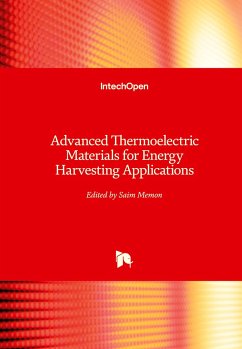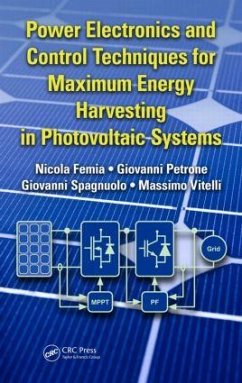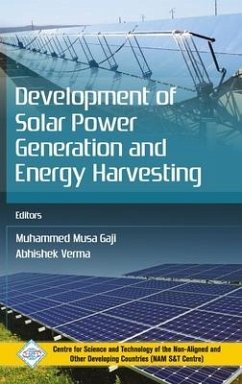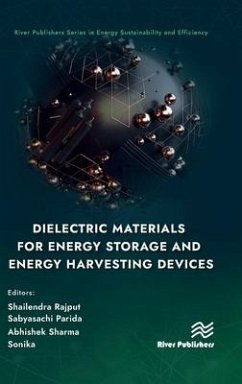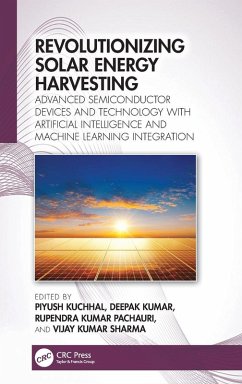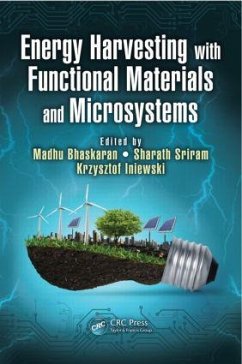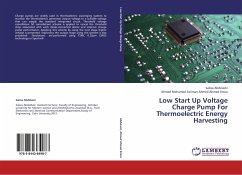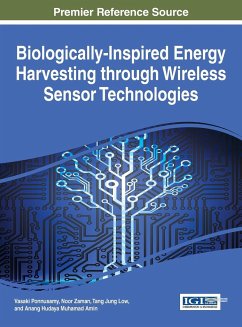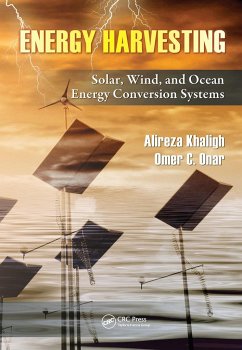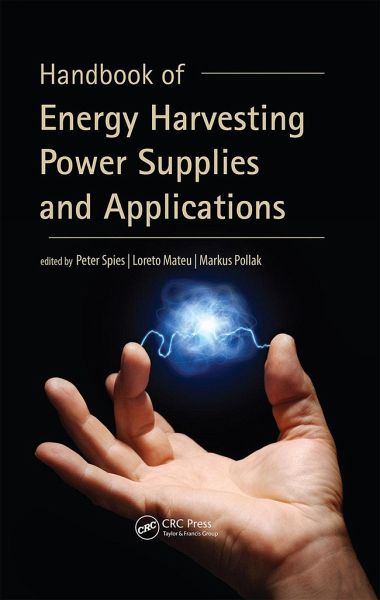
Handbook of Energy Harvesting Power Supplies and Applications

PAYBACK Punkte
76 °P sammeln!
This book describes the fundamentals and principles of energy harvesting and provides the necessary theory and background to develop energy harvesting power supplies. It explains the overall system design and gives quantitative assumptions on environmental energy. It explains different system blocks for an energy harvesting power supply and the trade-offs. The text covers in detail different energy transducer technologies such as piezoelectric, electrodynamic, and thermoelectric generators and solar cells from the material to the component level and explains the appropriate power management ci...
This book describes the fundamentals and principles of energy harvesting and provides the necessary theory and background to develop energy harvesting power supplies. It explains the overall system design and gives quantitative assumptions on environmental energy. It explains different system blocks for an energy harvesting power supply and the trade-offs. The text covers in detail different energy transducer technologies such as piezoelectric, electrodynamic, and thermoelectric generators and solar cells from the material to the component level and explains the appropriate power management circuits required in these systems. Furthermore, it describes and compares storage elements such as secondary batteries and supercapacitors to select the most appropriate one for the application. Besides power supplies that use ambient energy, the book presents systems that use electromagnetic fields in the radio frequency range. Finally, it discusses different application fields and presents examples of self-powered electronic systems to illustrate the content of the preceding chapters.





